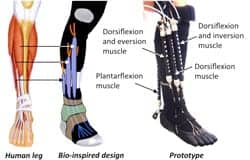A large scale retrospective study of post-stroke rehabilitation practices compares outcomes among patients using tablet-based therapy at home and those who complete the same therapy in a clinic.
The study, published in Frontiers in Neurology, analyzed data from 3,686 Constant Therapy users—patients with post-stroke aphasia—over a 4-year period (2013-2017).
In the study, home users and clinic users completed cognitive and language tasks such as Functional Math, Name Pictures, Map Reading, and Auditory Commands that are featured in the Constant Therapy app. Home users worked independently while clinic users worked under the guidance of a clinician. The study compared improvement rates for both groups, who were initially struggling with a task (less than 60% accuracy) but eventually mastered it (more than 90% accuracy), explains a media release from The Learning Corp.
Key findings include:
- Home users took less time to master tasks than users who only practiced in the clinic. While both home and clinic users required roughly the same amount of practice to master cognitive and language tasks, users who had on-demand access to therapy on their tablet mastered tasks in a median of six days, while those with only in-clinic access mastered tasks in a median of 12 days.
- Home users practiced therapy more frequently than clinic users. Users who had access to digital therapy on their own terms took advantage of practicing at home at least every two days, while clinic users practiced in the clinic just once every five days.
- Improvements are possible long after a stroke has occurred. Thousands of people in the study, regardless of where they practiced, showed significant gains in language and cognitive skills even though their stroke occurred long ago (on average two years ago for home users and average of 1.6 years ago for clinic users).
- Improvements aren’t just for the young. While the average age of home users was 60 years old and the average age of clinic users was 64 years old, nearly one third (29%) of users were 71 years old or more, and the oldest user was 97 years old.
Veera Anantha, president and CTO of The Learning Corp, suggests that the study’s findings show that home users who practice often can also progress quickly, which may mean they are ready to work on more challenging tasks in their next home or clinic session.
“These insights from real world patient experience could help update existing guidelines and highlight areas for future study to uncover how improvements in specific tasks can help people living post-stroke regain the skills they cherish, such as reading a newspaper, having a complete conversation, or ordering from a menu at a restaurant,” Anantha states.
A previous study published in Frontiers in Human Neuroscience examined the effectiveness of Constant Therapy among a group of 51 patients. It provided preliminary evidence for the usefulness of a tablet-based platform to deliver tailored language and cognitive therapy to individuals with aphasia, per the release.
[Source(s): The Learning Corp, Business Wire]



